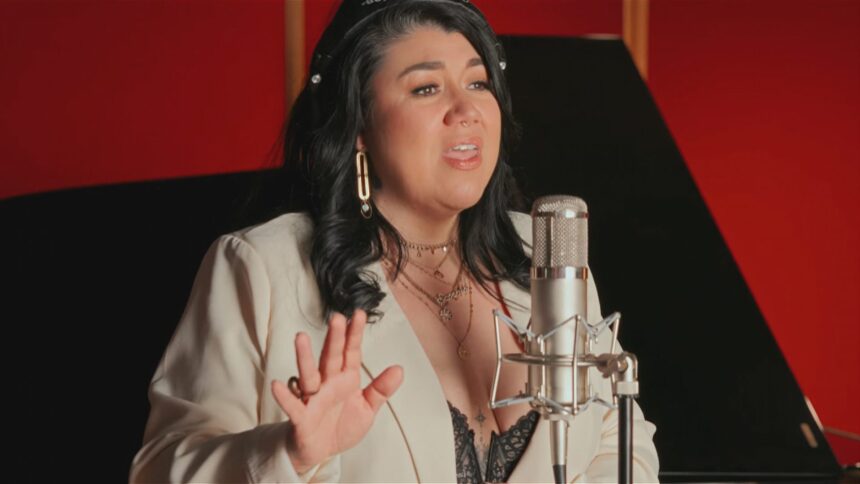Celeigh Cardinal feels the music industry has shifted for Indigenous artists. “There was almost nothing – or nobody – for me to look up to,” says the northern Alberta singer-songwriter with Cree/Métis roots. “I didn’t see myself anywhere, so massive changes for sure.” Cardinal is nominated in two categories at this year’s Juno Awards on March 30: Contemporary Indigenous Artist and Adult Contemporary Album of the Year. Listeners may recognize her voice from a Scotiabank ad in 2021 that features her cover of Tragically Hip’s “Ahead by a Century”. Or, the song, “The Devil is a Blue Eyed Man” from her album “Stories From a Downtown Apartment” for which she received her first Juno award for Contemporary Indigenous Artist of the Year. Cardinal fuses elements of rock, soul and blues to create a sound rich in energy and emotion. She captures moments from real life – the joyful and the difficult – to shape her writing. The singer has always been transparent about her journey, and the challenges of seeking representation in music. “People knew I was different, people were racist,” she said in an interview with APTN News. “I was sometimes looked at as ‘one of the good ones’ – and that was because I became so good at assimilating. “I’m looking at it now as a super power, but it made me shrink myself a lot when I was growing up.” 60s Scoop The artist’s father is a 60s Scoop survivor, which presented complications around cultural identity. She uses her platform in music storytelling to take back control of how she is perceived. Cardinal says she is part of a wave of Indigenous artists transforming their representation in the media. Organizations like the International Indigenous Music Summit and Manitoba’s Sahkiwe Festival have encouraged their advocacy. “There is a shared experience within Canada that Indigenous people have, and it’s a negative one,” she says. “It’s also the responsibility of the people who have settled on the land to learn that as well, so having that representation is a way to engage in that and learn from it.” The Juno Awards say they are planning to showcase greater diversity this year. “The increased presence of Indigenous artists in mainstream categories reflects broader industry recognition, growing representation, and engagement from the voting body,” the organization said in an email to APTN. While Cardinal says opportunities for Indigenous artists are growing, she finds the risks are, too. “These days, there’s a bit more funding that comes along with being an Indigenous artist (but) there are some predatory people or organizations that may try to jump in with you and take over.” The singer advocates for self-development in the early stages of an artist’s career. “Empower yourself by doing everything yourself, and then being really cautious with who you work with,” she advises. “You do it because you love it and then you carve the space. You make people listen to you – just take the space.” Continue Reading
Celeigh Cardinal reflects on her first experience at the Juno Awards in 2020

Leave a Comment









